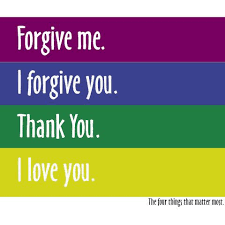Author: Jean Abbott
Loss comes in many forms and throughout life. I learned fairly early about Ira Byock’s book, The Four Things That Matter Most: saying “Forgive me,” “I forgive you,” “Thank you,” and “I love you.” All of us yearn for this kind of closure when we end one chapter and begin the next. Death is only one chapter. Some chapters in our life end suddenly, some are gradual, some are thrust upon us, and some we may choose. We lose a job. A sudden illness means we lose some independence. Our age catches up with us. Parents are no longer safe in their home of 40 years. A friend or family member drifts into dementia and we cannot ask them important questions or tell them important things. Or maybe our relationship was always fraught. True “completion” is rare; ambiguous loss and the grieving that accompanies it are perhaps more common, as it has been for me.
My mother was the thread that held our family together. Making others feel comfortable and happy was one of her primary goals. After my father died, she, like many women of her generation, blossomed into her own. She developed wonderful woman friends that she never allowed herself when my father was alive. She drove her friends to the grocery, enjoyed their company in her retirement home dining room, loved her annoying, yammering half-Siamese cat, Benjy. As she aged and had a series of mini-strokes, she experienced the stepwise trajectory into cognitive decline. She had to move to assisted living. She became more isolated. The losses struck me in little things – like when she stopped looking me up and down as I left from a week-long visit in my usual comfy jeans and sweatshirt for the flight home and she didn’t say “You’re going traveling dressed like THAT?” (She came from an era when you wore hose and a suit to travel.) And then came the time when I wheeled her down to the piano in the community room to play for her…. previously one of her great joys (and mine) ….and her eyes and mind just wandered. It happened so slowly that I could only see it looking back, when it was too late for meaningful “goodbyes.”
We all have these stories of ambiguous loss. What do we do when we don’t have the chance for the kind of closure we would want? Grieving may not be tied up in a bow, allowing us to turn to face forward. How does our faith community understand loss and help us? We’ll be talking about “Ambiguous Loss,” based on some work by Dr. Pauline Boss, in two Sunday Forum sessions in May. Come share your stories and share some ways that we might embrace each other in such ambiguities.

